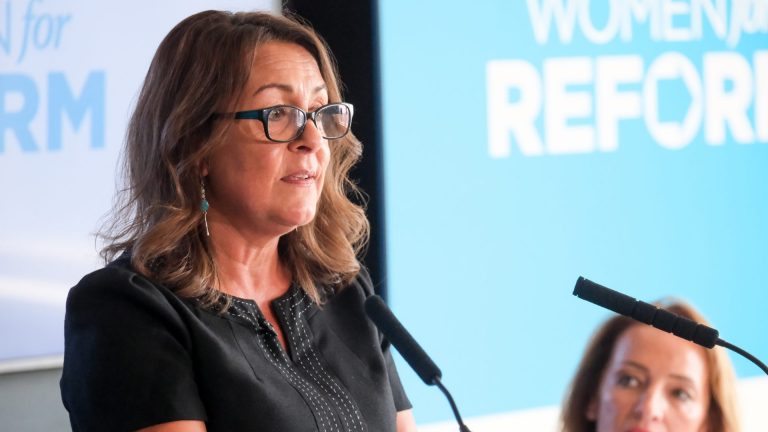Nigel Farage will never be prime minister. Zack Polanski will never lead a party in government. Labour will win the next election. I make these assertions with certainty despite the polls. Because the polls are literally right now the product of fantasy: mass delusions based on totally unsustainable assumptions.
We got a sense of the underlying problem last week, when Nigel Farage unceremoniously ditched the entire economic programme on which Reform contested the last election. Out went the £140bn worth of uncosted spending and tax cuts. In came waffle.
Farage knows that, despite the money of dodgy car salesmen and the odd rouble flowing in the direction of Reform, big finance cannot afford a Reform government, even one shorn of crazed fiscal profligacy. He knows that there are dire predictions washing around the City of London as to what UK bond yields would look like if a non-centrist, entirely inexperienced party took power.
I’ve been told by one source that those predictions centre on a prediction that a Farage government would spell an 8% effective interest rate for government borrowing – almost double the current figure. But I fear that is an underestimate.
To understand why, let’s use a metaphor well understood in business schools, but not by the electorate. In a crisis-wracked world, in conditions of universally high indebtedness, fiscal policy has to be imagined in terms of a house balanced on the tip of a pencil. You can decide to move the sofa from one side of the living room to another, but you are obliged to say what else you are going to change to keep things balanced. That’s what Liz Truss failed to do in September 2022, with results we are still paying for.
The “moron premium” charged by the bond market has not gone away just because Rachel Reeves is in charge. Bond market vigilantes are called that for a reason: they are vigilant. If a country’s political system has produced an idiotic event once, it may do so again.
And though the government’s cost of borrowing has fallen recently, as markets become certain that Reeves will balance the books through taxation rather than austerity, it is still way too high. We are paying £105bn a year just to service our debts.
But Truss’s lunacy is nothing compared with the fantasies Reform, the Greens and Your Party are feeding the electorate.
Let’s start with Farage. Even if he went to the country with a promise to maintain exactly the same fiscal policies as Reeves, a Reform government would face an immediate fiscal crisis. That’s because the UK’s bond rate is set by investor demand, plus expected inflation, plus political risk – with this last factor driving feedback loops into the others.
Under a centrist government, investor demand is pretty constant: pension funds need to put their money somewhere safe, and that generates enough interest to pay their members. Under a government committed to central bank independence, and with an inflation target, likewise, long-term investors can be sure the value of their savings aren’t going to be inflated away.
But a government of amateurs? People who can’t run a county council without descending into Life of Brian-style factionalism, as is currently happening in Kent? A party pledged to replacing the system of elected ministers with their dodgy appointed mates?
Farage has a track record of trying to put pressure on the Bank of England – calling for it to back the use of crypto-currencies, the weapon of choice for money launderers and Russian crooks. He also has a track record of ditching manifesto commitments, amply demonstrated this week.
Meanwhile, the institutions that lend money to governments have changed. Before the 2008 crisis, many “dealer” banks not only managed the buying and selling of bonds between government and pension funds but also traded on their own account – the equivalent of the croupier laying their own bets on the roulette table.
With tighter regulations in force, their place in this part of the market has been taken by hedge funds, whose investors demand higher returns, and who are more likely to “play” anomalies between different countries’ debt costs, and indeed uncertainties about politics. Plus around a quarter of UK government debt is held by foreign investors, who are at greater risk from any downward currency movements.
In these conditions, any Reform government is a recipe for a bond market shock. More than a week before Truss’s mini budget I warned that it would lead to a “sudden stop” of investment. Today I am warning that a Reform government, or even a Tory-Reform coalition, would be a recipe for a much bigger fiscal crisis, which would start the moment an election was called.
Suggested Reading


Now Reform’s Kent antics are a fire hazard
By the same token, any government exposed to Green demands to “make the billionaires pay”, or Zarah Sultana’s facile promise that “we’re taking the lot”, would run the same risks. At the last election, the Greens promised to scrap fiscal rules altogether, and to spend £160bn we haven’t got.
We’re not alone: the whole developed world is mired in stagnation and high debt. But our borrowing costs are highest because our system cracked first and – though few people want to think about it – we are a multinational state where three nationalist parties (the SNP, Plaid and Sinn Féin) would probably react to the election of an ethno-nationalist government in London with new demands for independence.
So here’s how I read the polls. They are currently a barometer of identity and grievance – with racists answering Reform and progressives who just don’t want to shoulder the burden of fiscal responsibility, or engagement with socially conservative working people, answering Green.
Put another way, they are a demand for Reform or Green government but with Labour levels of fiscal stability. It’s an unrealisable fantasy, and if the bond markets took them seriously they would already be marking up the yields under Labour.
But they’re not. Later this month, Rachel Reeves will deliver a budget designed to inject further stability into the UK’s public finances. It will be about as exciting as a ton of concrete squirted into the foundations of an unstable building, but just as essential.
The task, then, is for Labour politicians to explain that this small, boring, figure – the four-point-something per cent we currently pay on 10-year bonds – is a massive achievement, underpinning their ability to go on delivering free school meals, hospital appointments, prisons, social services and the welfare bill.
They may call her “Rachel From Accounts” – but corporate finance departments exist for a reason: you cannot spend money you do not have, you cannot borrow from people who don’t believe you, and the first thing any investor looks at is not the logo, the brand or the rhetoric of the CEO. It’s the accounts.




